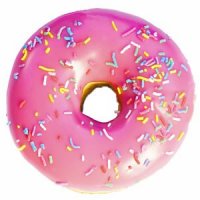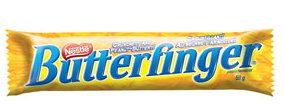From Judge Walter Calcagno's Instructions to the Jury:
If you find from the evidence that at the time the alleged crime was committed, the defendant had substantially reduced mental capacity, whether caused by mental illness, mental defect, intoxication, or any other cause, you must consider what effect, if any, this diminished capacity had on the defendant's ability to form any of the specific mental states that are essential elements of murder and voluntary manslaughter.
Thus, if you find that the defendant's mental capacity was diminished to the extent that you have a reasonable doubt whether he did, maturely and meaningfully, premeditate, deliberate, and reflect upon the gravity of his contemplated act, or form an intent to kill, you cannot find him guilty of a willful, deliberate and premeditated murder of the first degree.
Also, if you find that the defendant's mental capacity was diminished to the extent that you have a reasonable doubt whether he was able to form the mental states constituting either express or implied malice aforethought, you cannot find him guilty of murder of either the first or second degree.
In determining if defendant had diminished mental capacity, if there was evidence that defendant's act was the product of an irresistible impulse, you must consider whether or not such irresistible impulse, if any, was due to mental illness, mental disease or mental defect so as to render defendant incapable of forming the mental states essential to murder or voluntary manslaughter .
From Defense Attorney Douglas Schmidt's Opening Statement
Good people, fine people, with fine backgrounds, simply don't kill people in cold blood, it just doesn't happen...The part that perhaps went unrecognized, and certainly went unrecognized until it was too late, was the fact that Daniel White was suffering from a mental illness. He had been suffering from a mental illness since the time of early manhood, and it's a disease like any other disease, perhaps not easily diagnosable as a broken leg or arm, but far more devastating to the person, and the disease that Daniel White was suffering from is called "depression," sometimes referred to as "manic depression," and sometimes simply as "depression." It's not a feeling that perhaps you and I have experienced wherein one is depressed over certain turns of events or disheartened by something that has happened, but this is a chemical change that occurs within the man's body, and it's diagnosable and substantiated as a disease.
The doctors, of course, will corroborate in great detail, and doctors will be called here to testify in regards to the symptoms of depression, and basically they entail radical changes to the diet, compulsive difficulty in sleeping, low energy, withdrawal from duties, withdrawal from job, and withdrawal from others, and sometimes bizarre behavior, and these depressive episodes occurred with some frequency in Daniel White's life, but went unrecognized, and as I have indicated, he was never treated for this disease, and there are several reasons why it went unrecognized. Most of those reasons have to do with his character and personality.
From Testimony of Defense Witness Denise Apcar (Questioned by Douglas Schmidt)

Q What did you notice about the changes in him [beginning around March of 1978]?
A Well, he became frustrated with the job quite early. He was having difficulty at that time adjusting to the political process, as to ups and downs, give and take, and he became moody and withdrawn, and started to come much less, started to cancel meetings, just basically depressed a lot.
Q Did you notice anything about his health habits or diet that was irregular?
A Yes, he would ask me to buy him candy a lot during lunch breaks and board meetings and at recess, and he ate a lot of candy, and he would eat doughnuts, junk food, sugar drinks.
Q Was that unusual?
A It was very unusual. When I first met him he said he never wanted anything but milk, never drank, didn't smoke or drink coffee, and it was very unusual. He worked out a lot, was physically fit. He always ate very healthy foods.
Q Did he seem to, in your opinion, gain weight after you had known him?
A Yes, it was very slight at first. I didn't really notice, but I started to notice it in his face, which became puffy, and his pants would fit tighter....
Q Did you ever notice the time during the late summer meetings that he did go to, that went well or poorly?
A There was one meeting in which he came off very, very well. . . .Afterwards he spoke to the-to this crowd of merchants, and this was a potential, antagonistic situation, and after the meeting I was euphoric. I thought he won them over. They were giving him a standing ovation. We got in to my car, and he looked so-he looked pale, and he looked exhausted, as if he had been running 20 miles. He was-didn't want to talk about it, didn't feel well, and he wanted me to go to a doughnut store, buy him doughnuts. He consumed about five doughnuts in a matter of seconds, and he looked very, very withdrawn. It just really shocked me. I didn't know what to think.
From Testimony of Defense Witness Donald Frediana (Questioned by Douglas Schmidt)

Q And, as I mentioned before, you are friends with Dan White?
A Yes, sir. I consider Dan a good friend. . . .
Q You mentioned that, or I asked if you saw some change in him after he had been on the Board of Supervisors?
A Yes. When he first started out, like I say, he came down for lunch, and Dan was always, always into health. He was always in tip-top shape. Every time him and I would see each other, the first thing we had asked each other is, "How you feeling? How you doing? You working out?" And Dan would run, and I'd run and, basica1ly all the different sports events. He loved sports and I loved sports. And I noticed when he first started out he'd come to the firehouse and he'd bring his own sandwich and had milk and everything, you know, and-or we'd have a hamburger, but he'd always have his milk. And later on he'd come down and he'd get a Coke, and that's not like Dan at all to get a Coke. Or he'd eat candy or something like that. That's not like him either. Then I would see him on the clippings on the-on the TV or in the newspaper and he'd just look like he gained weight. His face looked all puffy to me. It looked like he was changing. I'd talk to him and he'd sound the same, but to me-he just didn't look the same to me. It looked like he was going downhill. I mean, he just wasn't the same physically and not the same guy to me.
From Testimony of Defense Psychiatrist Dr. Martin Blinder (Questioned by Douglas Schmidt)

Q In other words, the factor in there, the overall question of Mr. White's personality, mental status, is the fact that he has depression perhaps as many as a half a dozen per year?
A Is the fact that he's had depression, perhaps as many as half a dozen per year, each lasting four to five days often without any apparent trigger.
During these spells he'd become quite withdrawn, quite lethargic, He would retreat to his room. Wouldn't come to the door. Wouldn't answer the phone. Would call in sick. Wouldn't even sleep with his wife; would sleep on the couch outside.
And during these periods he found that he could not cope with people. He would avoid them because he'd find that when he was depressed, any confrontations would cause him to kind of become argumentative. He left people. He didn't know what he was thinking, which was out of character for him. Ordinarily, he was always polite.
There are two other features of these spells of particular interest. These depressive spells.
One, though he has had suicidal thoughts during these periods of despondency, he has never felt remotely homicidal, though he felt resentful and quarrelsome.
Second, whenever he felt things were not going right, he would abandon his usual program of exercise and good nutrition and start gorging himself on junk foods: Twinkies, Coca Cola. [Note: this reference to Twinkies inspires the description "twinkie defense."]
Mr. White has always been something of an athlete priding himself of being physically fit. But when something would go wrong, he'd hit the high sugar stuff. He'd hit the chocolate, and the more he consumed, the worse he'd feel, and he'd respond to his ever going depression by consuming ever more junk food. The more junk food he consumed, the worse he'd feel. The worse he'd feel, the more he'd gorge himself, and so on, in a vicious circle.
Finally, after several days, he'd pull himself together, maybe start jogging a bit, feel better, stop eating this food, feel better yet, and then get back to his old diet and his old personality, which is generally pretty congenial.
Characteristic of Mr. White, he has never sought out treatment for these episodes....
Q Doctor, you have mentioned this ingestion of sugar and sweets and that sort of thing. There are certain theories with regard to sugar and sweets and the ingestion thereof, and I'd like to just touch on that briefly with the Jury.
Does that have any significance, or could it possibly have any significance?
A Well, I think, Mr. Schmidt, there are probably three factors that are significant.
First, there is a substantial body of evidence that in susceptible individuals large quantities of what we call junk food, high sugar content food with lots of preservatives, can precipitate anti-social and even violent behavior.
There have been some studies, for example, where they have taken so-called career criminals and taken them off all their junk food and put them on milk and meat and potatoes, and their criminal records immediately evaporate.
There have been a lot of studies in which individuals who are susceptible to these noxious stimuli, when given these noxious stimuli will undergo complete change and engage in behavior which they normally would not. That's No.1.
No.2, I think that all the pressures impinging on Mr. White for months, increasing in intensity in the days prior to the shooting, made it very difficult for him to think very much about what he was about. I think he was operating largely in an unthinking emotional way. Physically exhausted. Feeling tremendous pressure to begin to do the right thing and, yet rapidly running out of the energy and the emotional needs available to do it.
I think he began to focus irrationally on being reappointed as the savior. That's the solution. If only I am reappointed, then all these pressures will be off of me. And I think, realistically, were he reappointed, he'd be right back where he was before.
But at least at the time that the Mayor and Supervisor Milk had been shot, he had come to see reappointment as his last salvation, and I think when the Mayor said, "No, you are not going to be reappointed,” pulled the rug out from under him.
The third factor I think is that by the day of the shooting all of these pressures on him seemed to reside within, or be personified by Mayor Moscone and then Supervisor Milk. They seemed to represent in the flesh all the things that were impinging upon.
And I would suspect, that if it were not for that, and if it were not for all the tremendous pressures on him the weeks prior to the shooting, and perhaps if it were not for the ingestion of this aggravating factor, this junk food, with all three factors, did not impinge upon him at the same time, I would suspect that these homicides would not have taken place.
